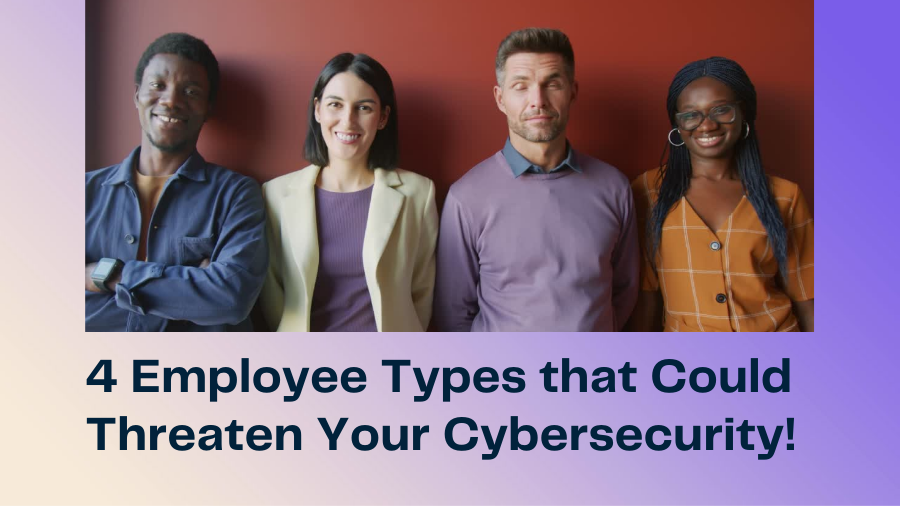To celebrate Cybersecurity Awareness Month, we’ve compiled a list of four employee cyber personalities to help you identify potential areas of improvement for your company’s cybersecurity strategies. Cybersecurity is a serious topic, but we can still have fun while learning about it.
Cybersecurity threats come in many forms, and there are no easy fixes to make your school completely safe from attack. However, there are several employee cyberthreat personalities you should be aware of in order to create better cybersecurity awareness. Once you know what each trait looks like, you’ll have a better chance of helping your staff make better technology-related decisions. Here’s what each one looks like and how to deal with it most effectively.
1. The Skeptical Employee
Skeptical employees are often not aware of the threats cyberattacks pose. They may believe a cyberattack will never happen, or underestimate the importance of regularly changing passwords or using two-factor authentication. Skeptical employees must be educated about why cyberattacks are a threat and what steps can be taken to guard against them. In addition, organizations should provide incentives for following best practices and enforce policies that prevent devices from connecting to the network if they are not updated with current security patches.
2. The Procrastinating Employee
One of the most common cyberthreats to K-12 networks is the Procrastinating Employee. They wait too long to connect a virtual private network (VPN) or deploy a security patch. While it’s not intentional, they may be waiting for a deadline or another person to do it for them. In the meantime, their inaction leaves your network vulnerable to attack. These people are often unaware that they are putting themselves in danger and neglecting cybersecurity protocols because they’re so focused on other projects.
3. The Naive Employee
This personality type often trusts too easily when it comes to potential cyber threats. They might leave computers unlocked, use the free Wi-Fi at cafes, or write passwords on sticky notes. If you see this employee, it’s important that you teach them about cyber threats and security awareness in order to get them on your side!
4. The Well-Intentioned Employee
This employee is well-aware of cybersecurity threats and attempts to take all the necessary precautions. They make sure to use complex passwords. They are cautious of email links and attachments, but may occasionally open them if they seem legitimate. The well-intentioned employee may not see the need for security awareness training. But it’s important to remember that even the best of us can become a cybersecurity target without even knowing it. A well-intentioned employee may be tricked into clicking on a malicious link or opening an attachment containing malware by a crafty hacker. Security awareness programs are designed to help employees identify suspicious emails, avoid being phished, avoid scams and malware risks on social media, identify potential security risks at work and know what to do when confronted with cyberattacks or other breaches.
In Conclusion
Every employee is unique in terms of their skills, traits, and motivations. Make sure these individual traits are being used and that your employees receive regular security awareness training to help them learn and practice good cyber hygiene.
Don’t worry if you don’t know where to begin. Our experience and expertise may be exactly what you’re looking for. Our IT services are available 24/7, so get in touch today for a no-obligation consultation on security awareness training.

